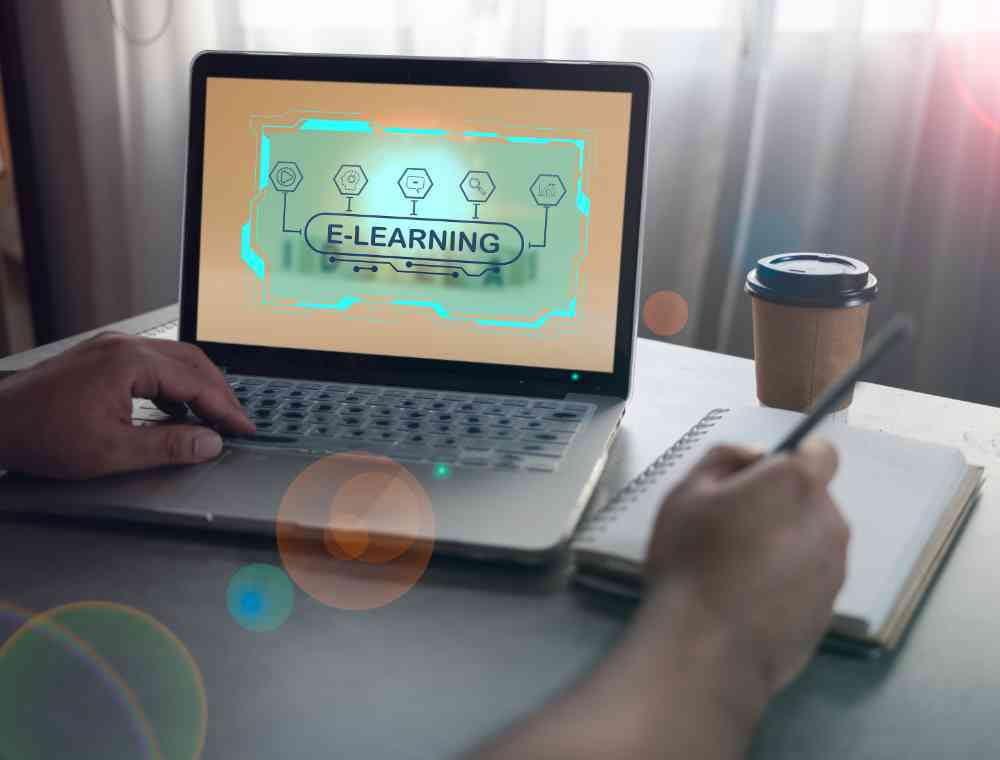
In our rapidly evolving technological landscape, the prevalence of artificial intelligence (AI) is undeniable. AI has permeated every facet of modern life, from healthcare to finance and entertainment to education. However, while it can potentially drive transformative results, it's easy to overlook the inherent risks of ethical considerations that come with misuse—one area where the consequences of misapplication are significant is in learning and skill development.
In this article, we will explore the concept of using AI as a shortcut to avoid learning, delve into the crucial distinction between learning and cheating, emphasize the importance of active learning alongside AI assistance, and shed light on the power of using AI-augmented learning instead of AI supported cheating.
Learning vs. Cheating: The Role of AI
As AI technologies advance, it's tempting to lean on them to circumvent the traditional learning process. However, the line between learning and cheating blurs when you use AI as a shortcut to avoid personal understanding of the materials.
Genuine learning is characterized by active engagement, comprehension, and the gradual acquisition of knowledge. It's a process that demands intellectual curiosity, critical thinking, and a willingness to grapple with concepts, theories, and problems. Active involvement with the subject matter fosters a deep understanding that goes beyond memorization and shallow comprehension. As learners immerse themselves in the learning journey, they gain knowledge and develop cognitive skills, analytical abilities, and a capacity for creative problem-solving.
Conversely, cheating is a shortcut that relies on external aids to achieve results without the genuine effort required for learning. For instance, using AI to cheat on tests, assignments, or projects undermines the educational journey, robbing individuals of the opportunity to master the subject matter thoroughly. Cheating sacrifices the integrity of the educational experience, replacing the process of growth and enlightenment with the allure of short-term success.
While AI should help make our lives easier, some moral and ethical considerations must be examined. One significant concern in the educational sphere is the misuse of AI to cheat on tests. Students might use AI-powered devices to access unauthorized information during exams, undermining the assessment's integrity and defeating the purpose of evaluating their understanding.
Any use of AI to gain unfair advantages on assessments is ethically unacceptable. The very essence of testing comprehension and knowledge retention is compromised when we misuse AI for cheating.
Many colleges have already been using AI detectors to help flag the misuse of content. Unfortunately, those detectors rarely work, and educators are going overboard by banning AI-generated work altogether, discouraging people from using AI technology. Society as a whole will only understand how to ethically, efficiently, and responsibly use AI with guidance from educators on how best to implement it throughout different phases of students' lives.

The utilization of AI in generating written content is another big topic of discussion. AI-powered language models can generate text on various topics, but the critical distinction is in the editing and refinement process. If the output of an AI-generated text is accepted verbatim without critical evaluation or editing, the educational value is compromised. Here, the line is drawn at the boundary between using AI-generated content as a starting point for exploration and relying solely on it as a finished product without active engagement.
The Importance of Learning Alongside AI
The convergence of human intellect and technological prowess is transforming the educational landscape. It's not about replacing traditional learning; it's about optimizing it with the augmentation of AI. Learning alongside AI, instead of relying on it as a crutch, is a pivotal shift with tremendous promise.
The fusion of AI assistance and active learning is not a mere trend; it's a strategic imperative. This integration is rooted in the understanding that while AI can provide insights and automation, human cognitive engagement remains irreplaceable. Active learning, characterized by inquisitive exploration and thoughtful analysis, complements AI's computational capabilities. When AI assists learners rather than dictates outcomes, a harmonious synergy emerges.
At the heart of learning alongside AI lies the promise of profound comprehension and expertise. AI's ability to organize data, identify patterns, and suggest paths for exploration enhances the learning process. However, the learner's active involvement turns these insights into tangible knowledge. When learners question, experiment, gather human feedback on the topic, and challenge AI-generated insights, they gain a deeper understanding of the material. By embracing AI as a supportive guide, learners transcend superficial comprehension and embark on a journey toward expertise. AI-assisted learning will propel humanity to higher levels of understanding than our attempts to learn on our own or only with the resources available to us.

Even with current technologies, disparities between groups throughout society and barriers to learning still exist today. AI will help close the gap, giving everyone a personalized tutor for any subject they are working on. More than ever, your limit to understanding and exploring a subject will only be dictated by your willingness to learn and grow instead of the societal challenges you've been dealt.
Some real-world case studies highlight the transformative potential of incorporating AI into the learning equation. For instance, AI-driven simulations in medical education aid aspiring doctors in diagnosing complex cases, refining their clinical acumen. In language learning, AI-powered platforms offer personalized language instruction, adapting to individual strengths and weaknesses. These examples spotlight the successful integration of AI as an ally that propels learners toward mastery.
AI as a Catalyst for Skill Development
AI's potential to accelerate skill development is a game-changer. Mundane and repetitive tasks that were once time-consuming can now be streamlined through AI automation, allowing learners to focus on higher-level concepts. AI-powered interactive platforms and tools provide personalized learning experiences tailored to individual needs, pacing, and learning styles. These tools serve as guides, offering insights and corrections that facilitate learning rather than replacing it.
Pacing is optimized, ensuring that learners neither feel rushed nor bored. Adaptive content delivery fosters engagement by providing challenges that align with the learner's skill level. AI-driven insights and corrections serve as navigational tools, guiding without overshadowing the journey.
Many learning platforms have already integrated AI technology to help facilitate knowledge acquisition. Some examples include:
- Zavvy: Zavvy is an AI-based learning platform that uses natural language processing (NLP) and machine learning (ML) to personalize learning experiences and provide real-time feedback to learners. It also uses data analytics to track learners' progress and give insights to instructors.
- Gradescope: Gradescope is an AI-based ML tool to help grade assignments and exams. It can recognize handwriting, diagrams, and equations and give students instant feedback.
- Duolinog: Duolingo is an AI-powered language learning platform that uses ML to personalize lessons and provide feedback to learners. It also uses gamification to keep learners engaged and motivated.
- Coursera: Coursera is an AI-powered online learning platform providing learners with customized course recommendations and feedback. It also uses data analytics to track learners' progress and gives insights to instructors.
- Highspot: Highspot is an AI-powered sales enablement platform that personalizes content recommendations and provides real-time insights to sales reps. Highspot's AI engine analyzes data from various sources, including CRM systems and email interactions, to provide sales reps with personalized content recommendations based on their needs. It also uses data analytics to track the effectiveness of content and provide insights to sales reps and managers.
Ethical Considerations and Responsible AI Use
The ethical and real-world implications of misusing AI as a learning shortcut cannot be ignored. Plagiarism and dishonesty tarnish the integrity of education. Responsible AI use demands a balanced approach that respects the learning process and acknowledges the value of genuine effort. Embracing AI ethically means using it as a supplement to learning, not a replacement.
The ethical considerations of misusing AI as a learning shortcut are multifaceted. At the core lies the issue of dishonesty, where learners exploit AI to bypass the learning process and present others' work as their own. Plagiarism, a grave offense in academia, becomes exacerbated when AI is wielded as a tool to generate content without comprehension or attribution. Such actions compromise learners' personal growth and the education system's credibility and authenticity.

Responsible AI use is rooted in a commitment to preserving the integrity of the educational journey. Upholding integrity means engaging with AI in ways that enrich the learning process rather than diminish it. Improving learning and knowledge involves employing AI to amplify understanding, expand perspectives, and refine skills while maintaining the ethical principles of transparency and originality.
A balanced approach to AI integration is the cornerstone of ethical AI use in education. AI's capabilities should be harnessed to complement and enhance learning, not to replace the effort required for genuine growth. The transformative potential of AI is maximized when it is aligned with personal learning efforts, where learners engage with the insights and assistance AI offers while actively participating in the learning process.
Leveraging AI to Augment Learning
Unlocking the true potential of AI heralds a new era in education – one where learning is amplified through seamless integration. By seamlessly weaving AI into our learning routines, we open the door to a realm of optimized knowledge acquisition. Imagine having an expert companion by your side, one that pinpoints knowledge gaps, directs you to pertinent resources, and offers immediate insights.
Think of AI as a versatile tool in the learning toolbox. Through AI, routine tasks are streamlined, allowing you to delve deeper into complex concepts. AI's keen analysis can detect areas where you need more attention, ensuring a comprehensive understanding. AI will enable you to spend less time on rote activities and more on meaningful exploration.
Integrating AI into your learning journey requires a thoughtful approach. Start by identifying areas where AI can provide value – whether it's automating data analysis, suggesting reading materials, or offering instant feedback on problem-solving. Next, develop a roadmap that balances AI assistance with personal engagement.
In an era of rapid technological advancement, we must wield AI responsibly, particularly in regard to learning. Misusing AI as a shortcut undermines the educational journey and compromises the integrity of skill development. Instead, we must embrace AI as a powerful ally that enhances our learning experience. Embracing AI as a learning aid rather than a stand-in paves the way for enriched educational experiences.
Integrating AI into our learning routines unlocks opportunities for deeper understanding, more efficient skill development, and a holistic approach to education. Let us tread the path of responsible AI use, acknowledging that the actual value of AI lies not in replacing our efforts but in amplifying our potential.

